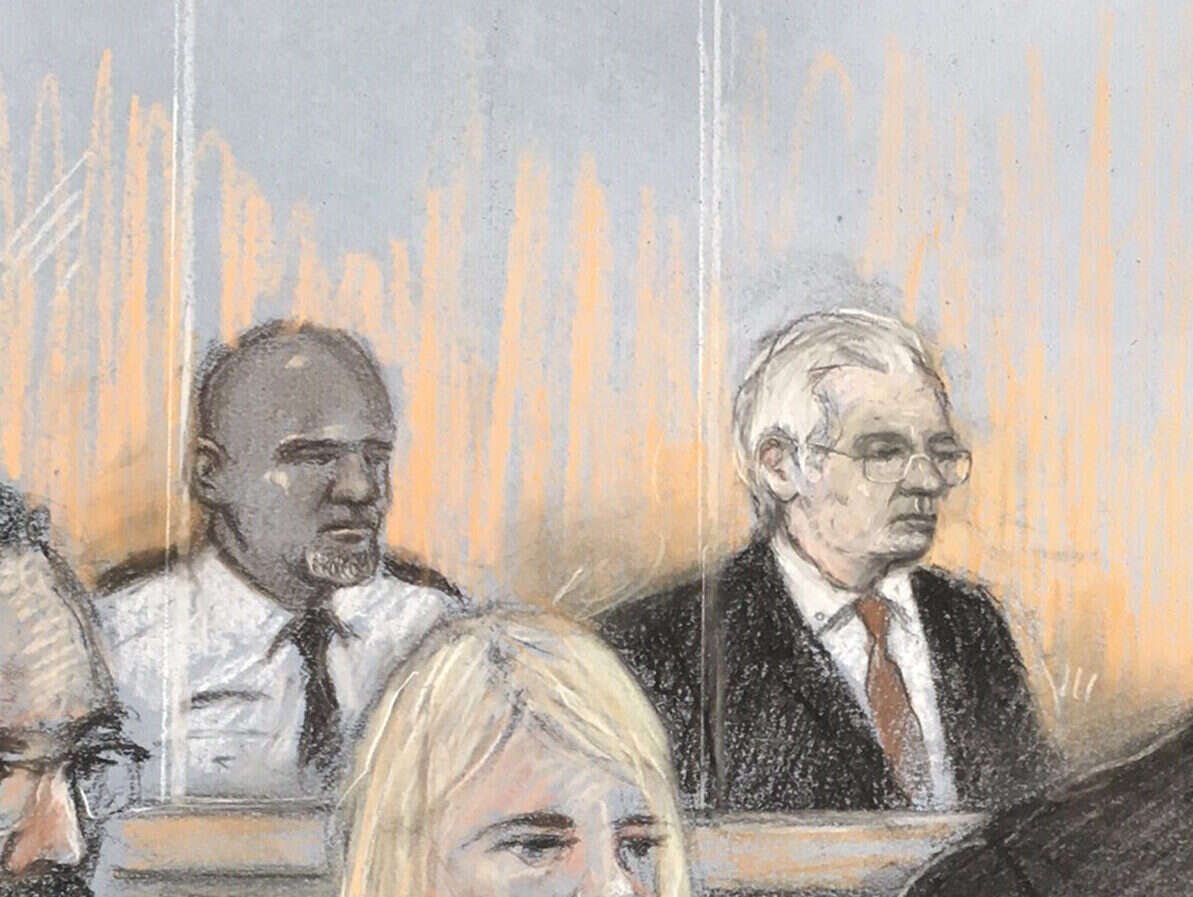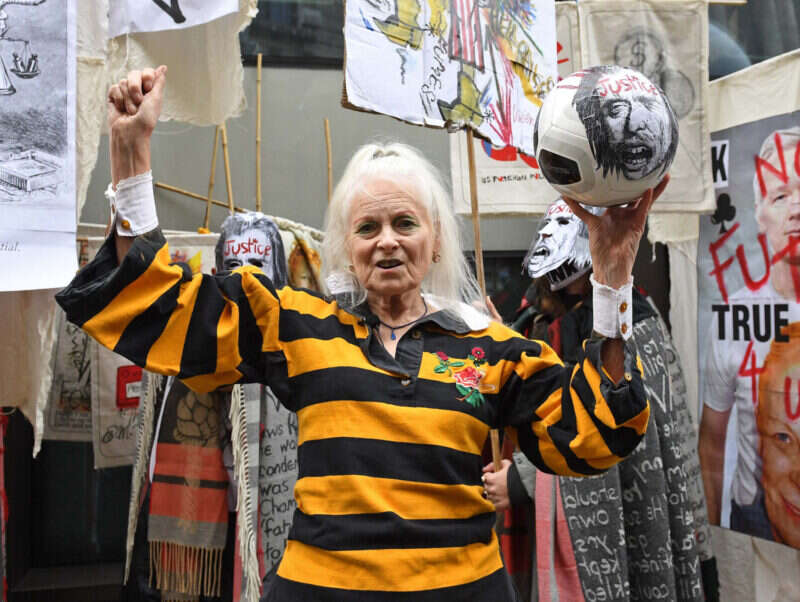
Wikileaks founder Julian Assange has failed in a bid to rule out new allegations against him as he fights extradition to the United States.
The 49-year-old, who has been in high-security Belmarsh Prison for 16 months, is wanted over the publication of hundreds of thousands of classified documents in 2010 and 2011.
On Monday, he was arrested in the cells at the Old Bailey over a new US indictment, containing 18 charges, lodged in June.
They add detail of alleged hacking plotters, which Assange and others at Wikileaks were said to have recruited.
Mark Summers QC, defending, said the “fresh allegations at the eleventh hour” were brought without warning or explanation, giving the defence no time to properly prepare a response before the extradition hearing.
He highlighted the difficulties Assange faced in speaking to his lawyers in the midst of ongoing restrictions, adding it “would be an impossible task for the defence to deal with these fresh allegations in any meaningful way”.
Summers added: “What is happening is abnormal, unfair and liable to create injustice if allowed to continue.”
District Judge Vanessa Baraitser rejected the defence bid to “excise” the allegations, saying: “These are issues which must take place in the context of considering the extradition request and not before it.”
Assange spoke to state he does not consent to extradition after confirming his name and date of birth at the start of the hearing.
The first witness to be called was a US journalism lecturer who told the Old Bailey leaks of classified information are commonplace and widespread.
Professor Mark Feldstein said there were “thousands upon thousands” of examples going back to the era of George Washington.
Giving evidence by video link, he said: “Leaks shed light on decision-making by the government and inform the public powerfully, but they also expose government deceit, corruption and illegality and abuse of power, and they go back to the George Washington presidency.”
He said most leaks were to the media but often also to Congress.
“Usually whistleblowers start in a government agency … When they get no response that’s usually when they go outside to Congress and the media.”
Prof Feldstein, of the University of Maryland, said that publication of leaks was a “daily occurrence”.
Edward Fitzgerald QC, for Assange, asked: “Are you aware of any publisher of leaked information ever being indicted in US history?”
The witness replied: “That’s never happened.”
He added that sources and whistleblowers had been charged but government had not pursued publishers for fear of falling foul of the First Amendment protecting free speech.
The charges against Assange include plotting to hack computers and conspiring to obtain and disclose national defence information.
The allegations include that Assange conspired with army intelligence analyst Chelsea Manning to crack a scrambled password, known as a “hash”, to a classified US Department of Defence computer.
If convicted, he faces a maximum possible penalty of 175 years in jail.
Assange’s legal team has accused the Trump regime of targeting him for “political” reasons after Wikileaks exposed alleged war crimes and human rights abuses.
Dozens of supporters, including his father John Shipton and fashion designer Dame Vivienne Westwood, protested outside court before the hearing began.
Dame Vivienne told PA: “I’m an activist, I am very frightened, I’ve lost days and years of sleep worrying about Julian Assange.
“Julian Assange is the trigger, he is shining the light on all the corruption in the world.”

Vivienne Westwood outside the Old Bailey, London, ahead of a hearing in Wikileaks founder Julian Assange’s battle against extradition to the US. Picture: PA Wire/Stefan Rousseau
Shipton described the extradition hearing as an “abuse trial”, adding: “The insistence, the malice that constantly falls like a Niagara upon Julian is just appalling, and indicates to us that the administration of justice here is enfeebled.”
A mobile billboard van drove past featuring a “Don’t extradite Assange. Journalism is not a crime” slogan and a picture of his face.
Assange’s partner Stella Moris, who has two children with him, was in court after visiting Downing Street in a bid to deliver a Reporters Without Borders petition against the extradition, which has been signed by around 80,000 people.
The extradition case was delayed due to the coronavirus pandemic in May.
Dozens of witnesses are expected to be called to give evidence over four weeks, with the judgment likely to be delivered at a later date.
Picture: PA Wire/Elizabeth Cook
Email pged@pressgazette.co.uk to point out mistakes, provide story tips or send in a letter for publication on our "Letters Page" blog
